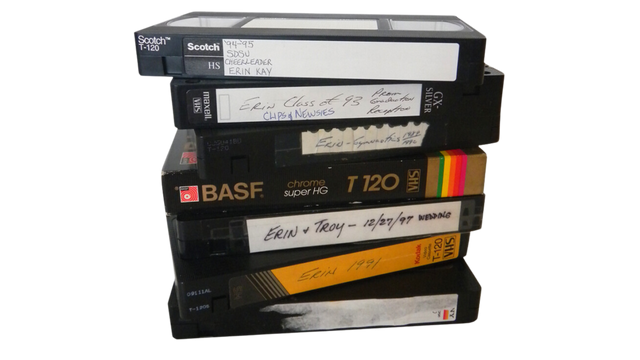How to Digitize VHS Video Tapes at Home
VHS tapes once held our most precious moments—first birthdays, wedding speeches, family road trips. But if you’ve tried to play one recently, you know the frustration: no VCR, or worse, one that eats the tape. If you're wondering about VHS conversion, you're not alone.
To digitize VHS video tapes at home, you’ll need:
- A working VCR (not as easy to find these days)
- A VHS to USB converter or video capture card
- Software to record the footage onto your computer
You’ll plug the VCR into your computer using the converter, press play on the tape, and record in real time. The end result? A digital file (usually MP4) you can save, edit, or share.
This process can work well for a single tape, but it’s time-consuming and assumes your equipment works correctly. If your VCR malfunctions, the tape jams, or you’ve lost the right cables, you’ll quickly run into roadblocks.
Need to troubleshoot? See what to do if your VHS gets stuck in the VCR.

What to Do When You Don’t Have a VHS Tape Converter
If your VCR is long gone—or you’re not ready to invest in gear you’ll only use once—you’re not out of options.
A professional VHS to digital service can help you:
- Preserve broken and moldy tapes without risking damage
- Convert footage into high-quality digital formats
- Choose how you want it delivered (USB and cloud)
Some companies still burn DVDs, but that format is quickly fading. That’s why many families prefer cloud delivery from America’s best video tape conversion service, so the files are safely backed up and easy to download anytime.
You can also read our guide on how to convert VHS tapes to digital if you're set on doing it yourself.

How to Convert VHS Video to Computer Without Headaches
Whether you’re tech-savvy or just curious, here’s a quick overview of what happens during conversion:
- The tape is played on a VCR and captured as digital video
- The footage is recorded to your computer or stored in the cloud
- The digital files can be edited, renamed, and shared as needed
The hardest part is usually finding a reliable VHS tape converter. Many cheap devices online don’t work with modern operating systems or produce grainy video.
And if you're dealing with smaller VHS-C tapes, remember: they need an adapter to fit in a VCR. Learn more about how to convert VHS-C tapes the right way.

📧 Want more tips like this?
Subscribe to Heirloom emails to learn how to preserve your priceless memories. Get discount codes for expedited shipping, quality digitizing, and secure cloud storage. We never spam, and it’s easy to unsubscribe at any time.


